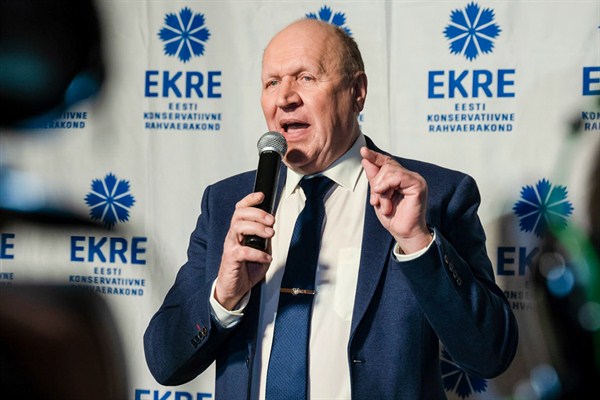After doubling its support in parliamentary elections that were held in March, Estonia’s far-right, populist Conservative People’s Party, known as EKRE, is now part of a three-party coalition government. EKRE’s emergence reflects rising political discontent in Estonia, but its euroskeptic and anti-immigrant positions are likely to be tempered by its coalition partners, which include incumbent Prime Minister Juri Ratas’ Center Party and the conservative Fatherland party. In an email interview with WPR, Martin Mölder, a researcher at the Johan Skytte Institute of Political Studies at the University of Tartu, in Estonia, discusses the recent election results and what to expect from the new government’s agenda.
World Politics Review: What were the main issues motivating Estonian voters’ choices in the March elections?
Martin Mölder: Much more attention was paid to the issue of values in this year’s parliamentary elections than in previous Estonian election campaigns. This was largely due to EKRE’s growing presence in the political arena, as well as the fact that the right-wing Fatherland party defined itself as a more distinctly socially conservative party during the two years leading up to the elections. This was counterbalanced mostly by the center-left Social Democrats, but also to some extent by the classically liberal Reform Party, both of which defined themselves more clearly as socially liberal. A nationalist outlook and emphasis on traditional family values were thus pitted against multiculturalism and the absolute primacy of individual rights. This debate set the overall tone for the election campaign.

